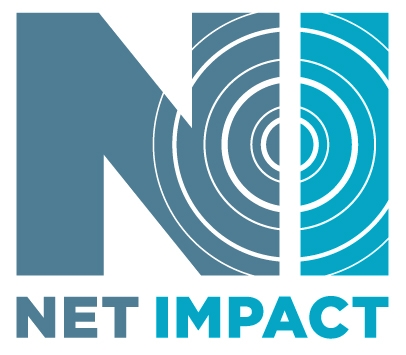
Last week, Taproot Foundation representatives Laura Weiss and Jaime Hiraishi attended and presented at the 2010 Net Impact Conference, 2020: Vision for a Sustainable Decade, hosted at the Ross School of Business at the University of Michigan. The audience was primarily socially-minded MBA candidates eager to make a difference and jump into their careers. With the many dynamic conversations, keynotes, and panels, they came away with valuable observations that we’d like to share with our Pro Bono Junkies.
 Innovation (Still) Sells
Innovation (Still) Sells
People seem to be disproportionately attracted to anything focused on innovation or design thinking. Evidence of this at the Net Impact Conference was the number of sessions with ‘innovation’ in the title that were almost instantly filled to capacity. Perhaps this is not too surprising since the majority of conference attendees were students searching for their professional destiny, and the promise of innovation is that it offers a signpost for the future.
Crowdsourcing is Hot
While there was debate about its effectiveness and quality controls, crowdsourcing is a hot trend in philanthropy and social change. Many companies and foundations have recently turned to crowdsourcing as a way to be more “transparent” in grantmaking, engage new audiences, or take their marketing in a new direction. Some are approaching this as purely a trend while others are making careers consulting on how to win crowdsourcing campaigns. What do you think, is crowdsourcing here for the long haul?
Twitter is (Sort of) Evil
There’s no denying that Twitter is a communications phenomenon of historic proportions. It was originally designed as a fun way for family and friends to stay in touch when they were not in the same place. At Net Impact this manifested as a ubiquitous visual feed that actually appeared on many of the presentation screens in the session classrooms. Some speakers even encouraged the audience to tweet questions if they preferred that to raising their hands. In the most egregious situations this feed was left running as a backdrop, providing direct competition with the session panelists. Guess who won? Apparently it’s more fun to read tweets than interact with live human beings.
CSR Can Be Part of Any Job
Anyone can incorporate social responsibility into a professional role. While titles like “Director of CSR” and “Director of Sustainability” are few and far between, there are ways to incorporate social responsibility and sustainability into every role. Why not become an advocate in your company for more sustainable practices and for more community engagement? Why not pave a new path for yourself? We won’t all have the opportunity to focus our roles solely on CSR, but we can all start to make small changes and have CSR become a natural part of our roles.
CSR Should Become Extinct
It was both shocking and stimulating to hear several presenters promote a future where the concept of corporate social responsibility is part of the DNA of every organization, thus rendering the term itself obsolete. It’s compelling to consider the parallel concept of ‘customer service’, and a world in which every stakeholder’s interest is always taken into consideration in the delivery of goods or services.
Chart Your Own Course
There is no standard career path for making a positive impact on society–it hasn’t always been a factor in traditional for-profit careers. So, it’s up to you to chart your own course. Don’t wait for someone to hand you your dream opportunity, make it for yourself. It takes courage and innovation to change the status quo and chart a new direction within a company. It takes courage and innovation to start something new, to change business practices, and try new strategies – but one champion is all it takes to implement lasting changes on a company and the community. It was undeniable that the MBA candidates were passionate about making a difference in society, so much so that it is not a matter of if they will change the face of business, but how. One inspiring story came from Mike Lynch, who has taken his love for nonprofits and service to his company, becoming a champion of pro bono within CapitalOne. He has written pro bono into his performance goals to let his manager know how important his pro bono work is, and that he sees it as part of his professional development and responsibility. If each of the 120,000 MBA graduates follow his lead and dedicate 5% of their billable hours to pro bono service, they would create a $2.2 billion marketplace of much needed professional services for nonprofits. How can we make this a reality?
Laura Weiss is the Vice President of Service Innovation at the Taproot Foundation.
Jaime Hiraishi is a Recruitment Coordinator and External Affairs Associate at the Taproot Foundation.
Discover the work Taproot is doing to advance the efforts of Corporate Social Responsibility teams through our Advisory Services practice.

